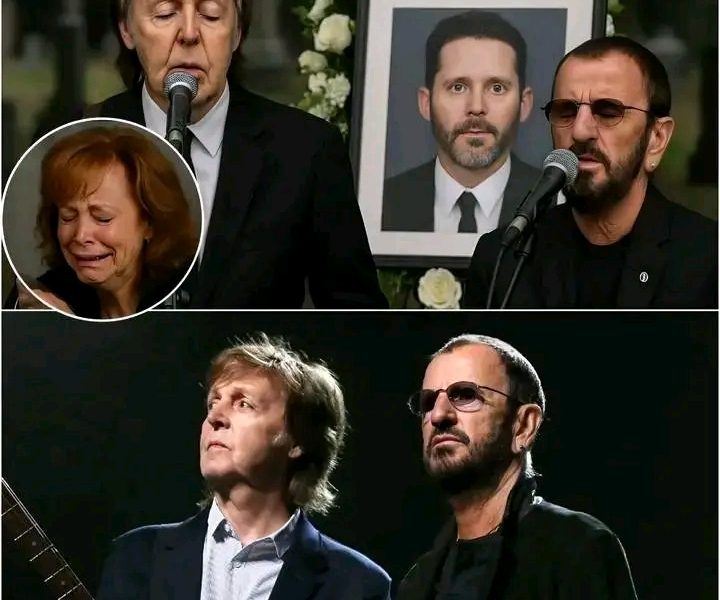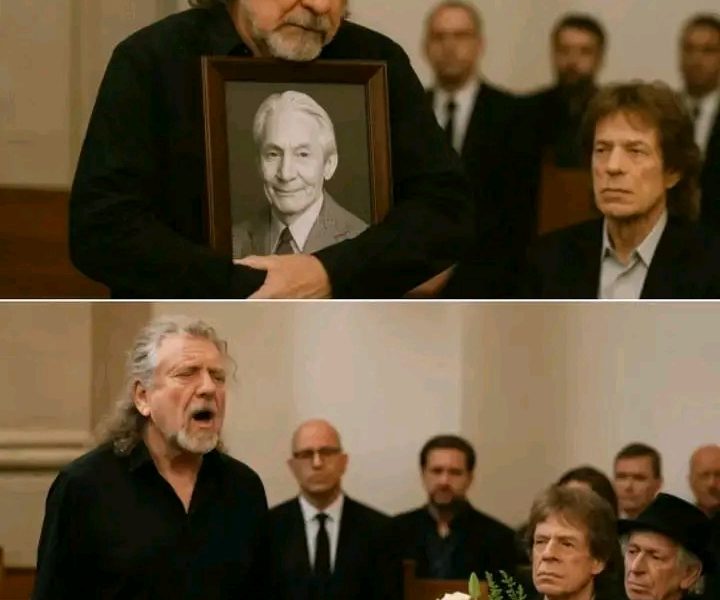“I still hear his adorable laugh in the quiet moments… and some days, that’s what gets me through.”
Grief doesn’t always scream—it sometimes sings. “All My Love” isn’t just a Led Zeppelin ballad. It’s a father breaking in real time. When Robert Plant lost his 5-year-old son, Karac, to a sudden illness, it shattered him. And instead of hiding, he put that pain into a song—not for charts, not for fame—but for the little boy who never got to grow up. Onstage in 1980, during Zeppelin’s final tour, Plant didn’t perform that song. He survived it. You could see it in his trembling voice, in the way he’d close his eyes, in the silence that wrapped around the crowd like a shared ache. In those minutes, he wasn’t a rock legend. He was just a dad, grieving out loud in front of strangers who suddenly didn’t feel like strangers at all. “All of my love… to you.” It wasn’t a lyric. It was a prayer. A goodbye. A forever. And maybe that’s the most powerful thing about music—it lets us turn our wounds into something that keeps breathing long after we can’t…
“I still hear his adorable laugh in the quiet moments… and some days, that’s what gets me through.”
Grief doesn’t always scream. Sometimes, it sings.
Led Zeppelin’s “All My Love” isn’t just a ballad—it’s a father breaking in real time. When Robert Plant lost his five-year-old son, Karac, to a sudden illness in 1977, it shattered him. He could have retreated, hidden behind fame and silence. Instead, he did something braver. He wrote. Not for charts, not for legacy, but for the little boy who never got to grow up.
“All My Love” became that offering. A eulogy in melody. A sacred space where pain could live without shame.
And during Zeppelin’s final tour in 1980, Plant didn’t simply perform that song. He survived it. Each night, under glaring stage lights, his voice would quiver just enough to betray the ache beneath. He’d close his eyes, not to shut out the crowd, but to summon a memory. A laugh. A face. In those moments, the arena didn’t feel like a rock concert—it felt like a cathedral.
You could feel it in the hush that fell when the music slowed. The crowd stopped being fans and became witnesses. They weren’t cheering a rock god; they were standing with a father who was grieving out loud, surrounded by strangers who suddenly didn’t feel like strangers at all.
“All of my love… to you.”
It wasn’t just a lyric. It was a prayer. A goodbye. A forever.
And maybe that’s the most powerful thing about music. It doesn’t fix the wound—but it gives it shape. It becomes the thing we can hold when everything else slips away. A song lets us speak the unspeakable. It lets sorrow echo instead of dissolve.
Plant’s voice trembled for all of us who’ve lost something we’ll never get back. He turned personal tragedy into shared catharsis. And somehow, in offering his pain, he made space for ours too.
Because some losses never leave. They just change form. And if we’re lucky, they turn into songs that keep breathing long after we can’t.Let me know if you’d like to tailor this for a specific audience or format (e.g., social media, print column, or spoken word).

